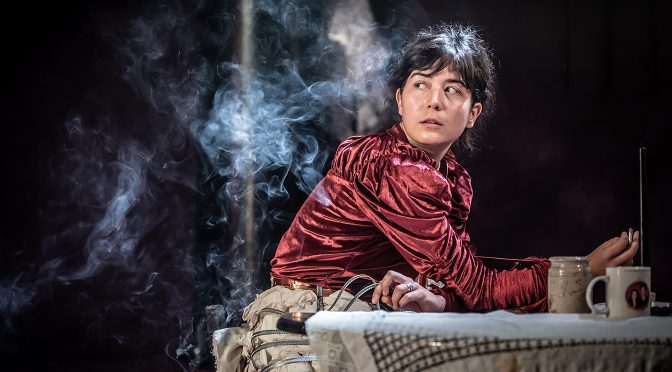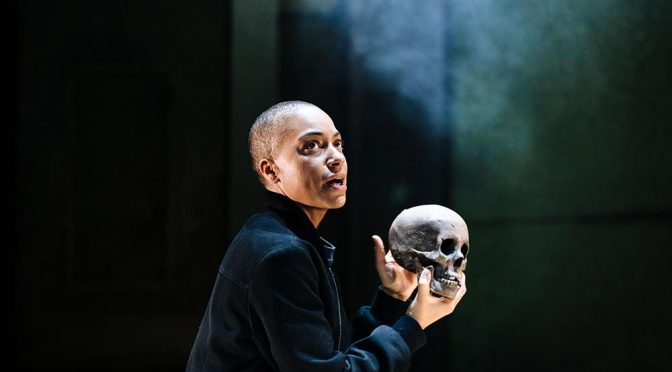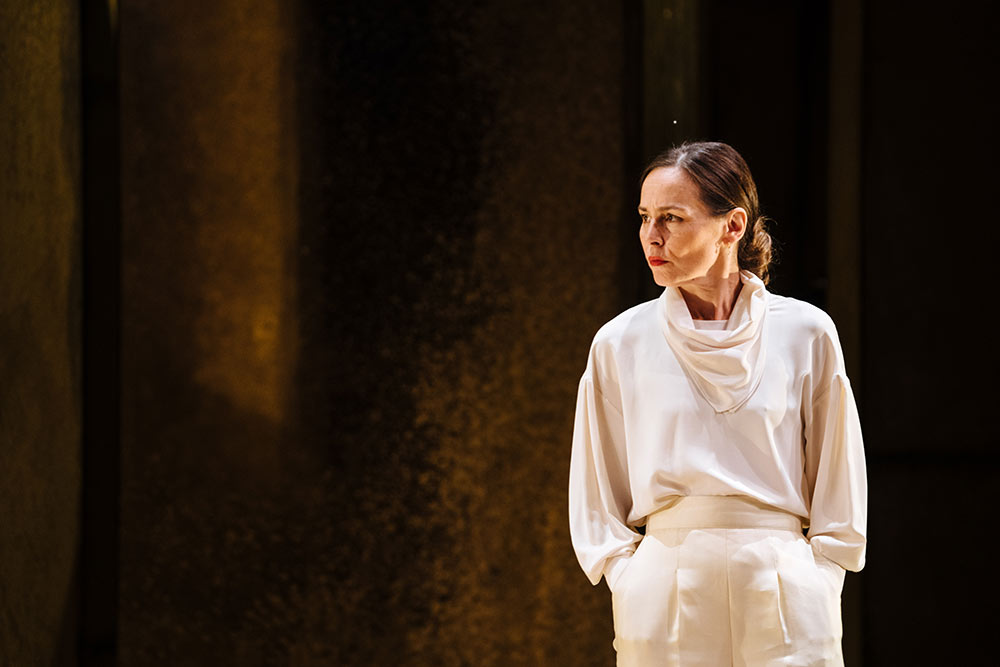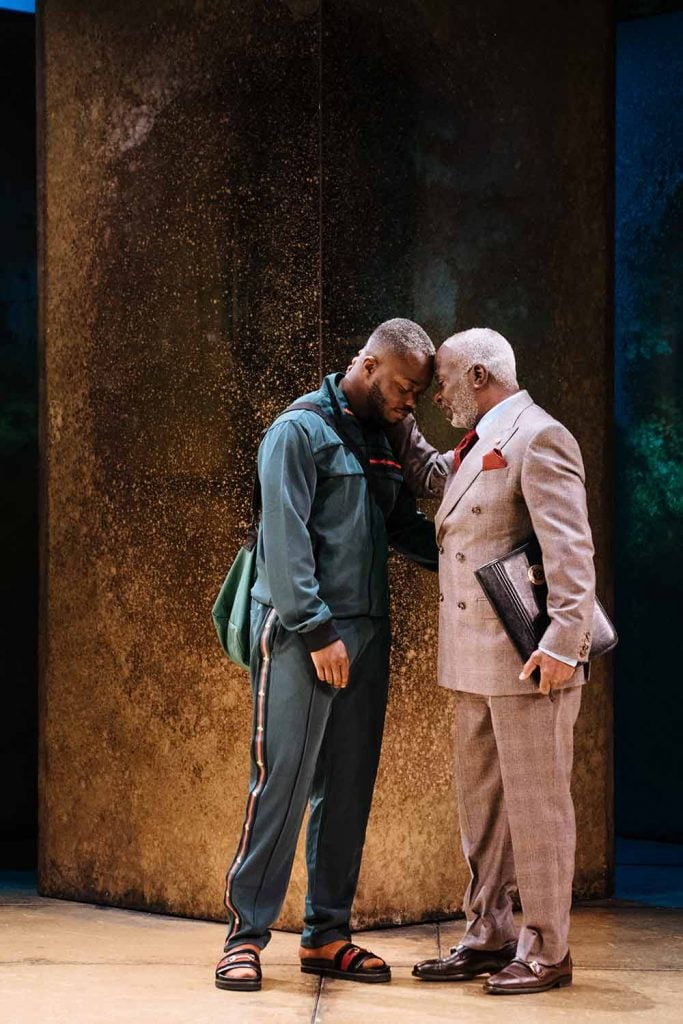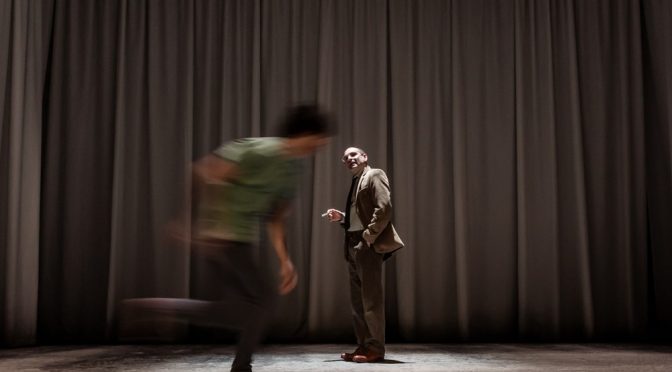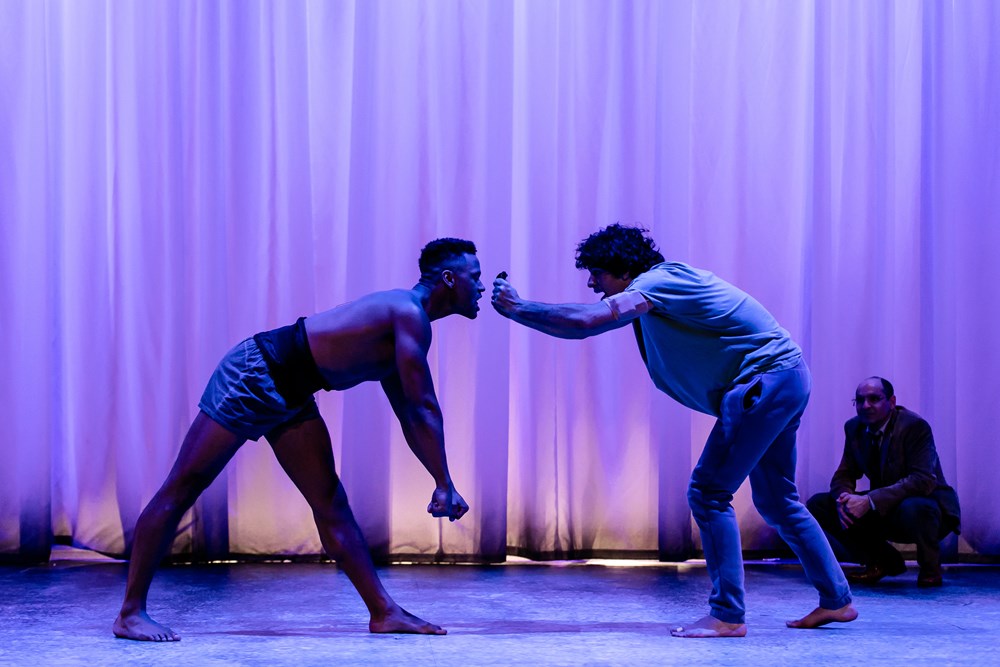The Cleveland Street scandal of 1889 concerned a male brothel in Fitzrovia, and the characters in this play either worked or visited there or investigated it. But, playwright James Fritz aims for a very different kind of historical drama and is open about not always following facts. Both its look, and bold direction from Jay Miller, provide originality for the production. Yet just as good, beneath the style, there’s fine storytelling and an intelligent engagement with history.
In this tale about the exploitation and persecution of gay men, the smartest move is to focus it on a woman – the mother of one of the boys who prostituted themselves. Doing an excellent job, Norah Lopez Holden plays Emily Swinscow, serving as our narrator and reminding us that this is an unpleasant story about desperate people forced into sex work. A lot about the production is cool, but this mother’s care for her son provides warm emotion.
The five-strong cast all take on more than one role and much of the casting stimulates through its sharp eye on class distinctions. To take the most obvious example, Lopez Holden also makes an appearance as Queen Victoria, showing how the scandal reached the highest levels of society. But note, Victoria shares Swinscow’s concerns for family. The monarch tries to make a deal with God to protect her grandson, even though it is the wrong thing to do.
Yes, God… they makes an appearance in the play, too. And let’s just say that Victoria gets very excited about the chat. Scott Karim does a divine job in the role, and it isn’t The Flea’s only crazy moment. Showing great skill, Connor Finch, Séamus McLean Ross and Sonny Poon Tip all join in the fast-paced, often comic, action. Miller makes sure it’s always clear what is going on. And there’s also considerable sympathy for all involved.
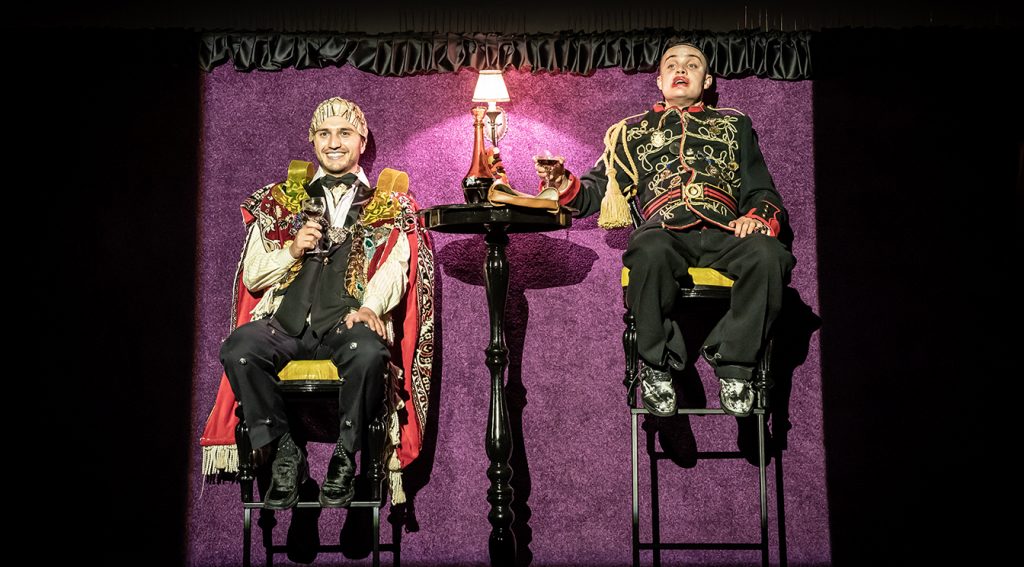
It’s going too far to say that Fritz shows sentimentality, but he has an eye on this most Victorian of traits. Finch makes a superb stage debut, movingly depicting two very different figures, while Poon Tip’s turn as one of the aristocrats drawn into trouble proves powerful. The play is harsh to those in charge and their agendas. Again, Karim excels as police Inspector Abberline, while McLean Ross’s nightmarish Prince of Wales is a marvel. But The Flea doesn’t blame. Highlighting compromises, some horrid, that characters make because of historical circumstances is a mature response to the period.
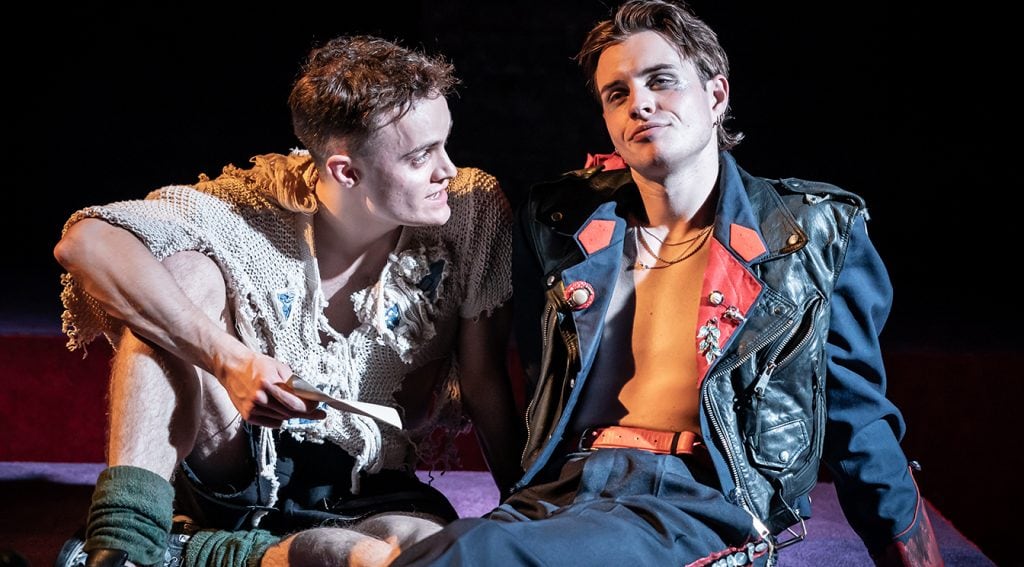
To save the best until last, it’s a pleasure to highlight a costume designer – Lambdog1066. What performers wear often only comes into focus if something is incongruous. Here, it’s all wrong! And brilliant as a result. The invention is fantastic (and so is the construction of the clothes themselves). The designs bear in mind the different roles to be played, with ruched sleeves joined to uniforms, or bolero and biker jackets looking both scruffy and smart. All sorts of materials are used – rags, carpets, even pottery. They do look crazed, but they help to tell the story. This aesthetic aids the aims of the play brilliantly and shares its intelligent originality.
Until 2 December 2023
Photos by Marc Brenner

